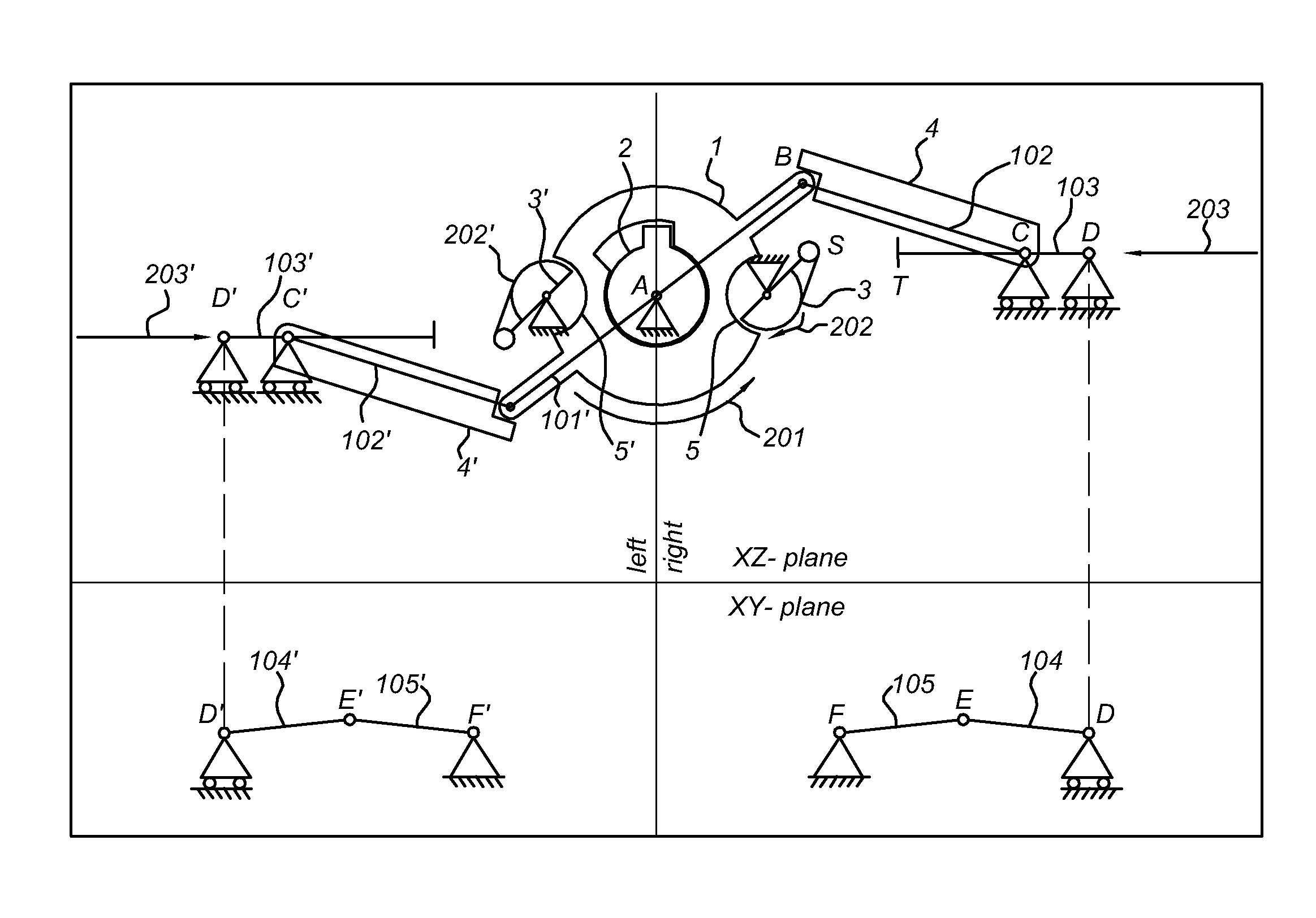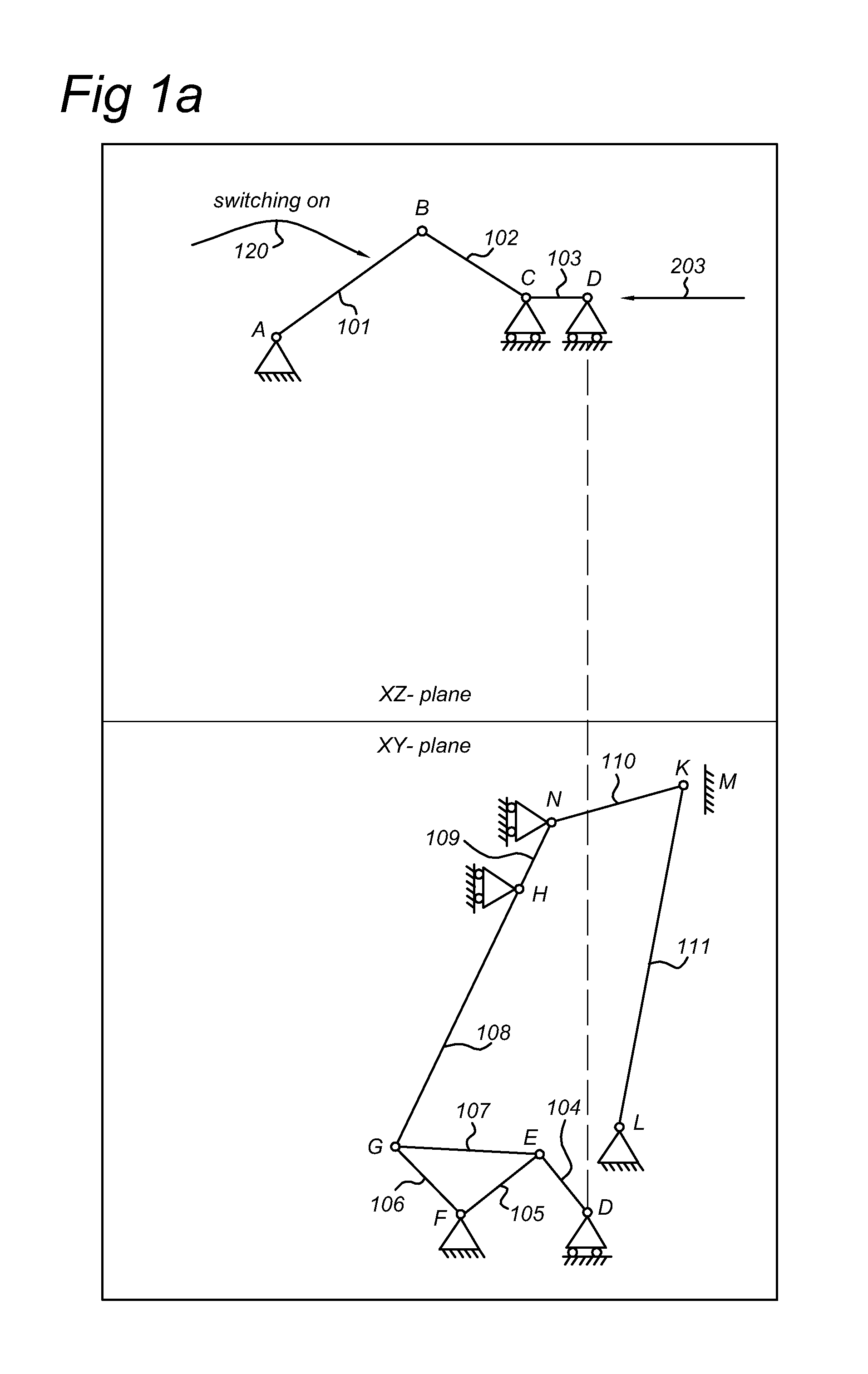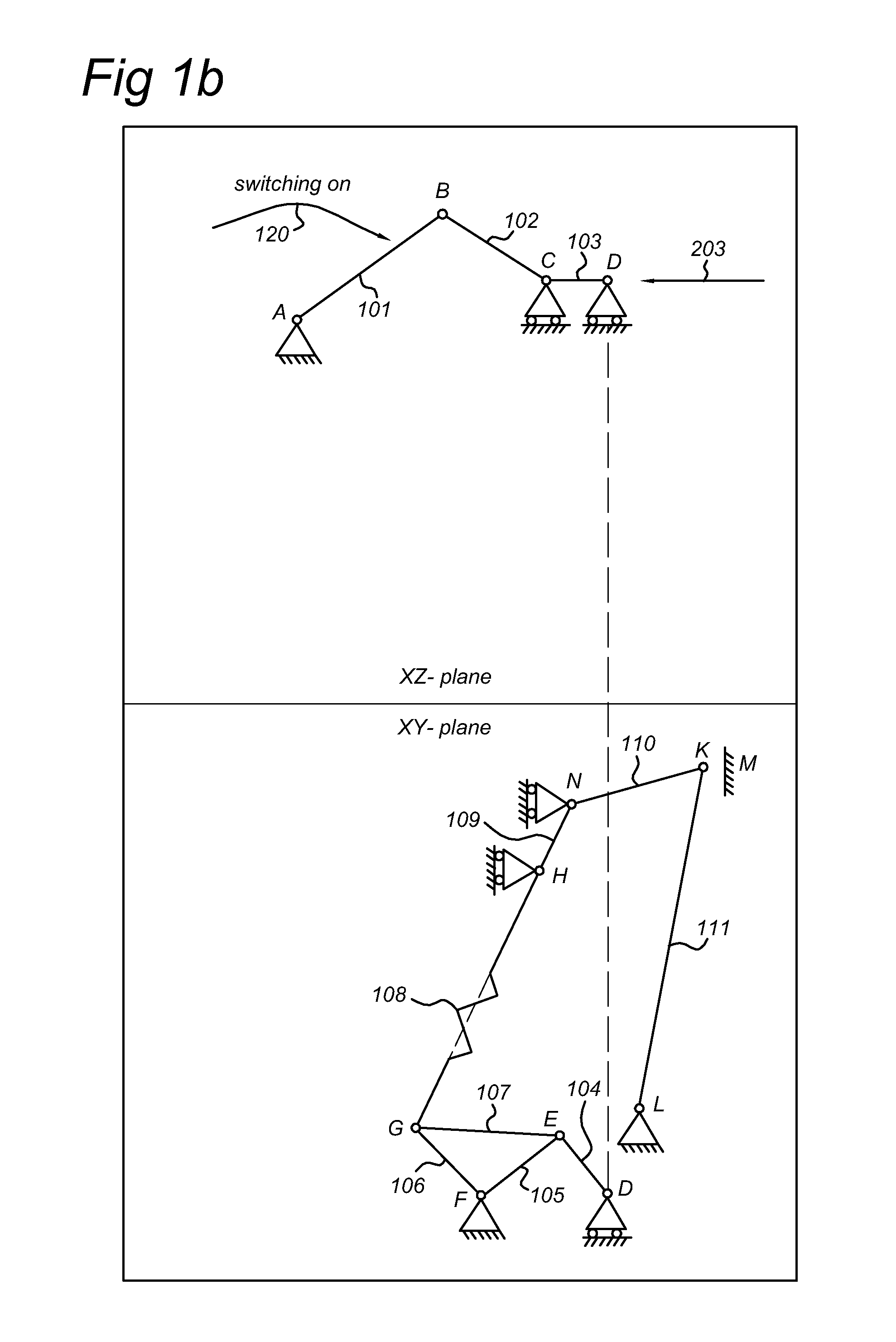Electrical switch with positive status indication
a technology of status indication and electric switch, which is applied in the direction of electric switch, tumbler/rocker switch, electric apparatus, etc., can solve the problems of tight requirements on the strength of the locking device, malfunctioning locking mechanism, and limit the maximum force that the device can withstand, so as to prolong the life and withstand large forces
- Summary
- Abstract
- Description
- Claims
- Application Information
AI Technical Summary
Benefits of technology
Problems solved by technology
Method used
Image
Examples
Embodiment Construction
[0033]FIG. 1a is a schematic drawing of the operation mechanism of the switch. A lever 101 rotates around an axis A which is mounted in the switch housing. This lever 101 connects to a second lever 102 through a joint B, and the second lever 102 drives a slider 103. The slider 103 makes a linear movement along the line through a joint C and a pivot point D. The slider connects through the pivot point D to another lever 104, which again drivers another lever 105, which is pivoting in the housing around a shaft point F. In the drawing, the rotation of lever 105 is in a plane perpendicular to the plane in which lever 101 rotates, but these planes can also be in another orientation, e.g., in the same plane. Lever 105 drives a movable contact K via intermediate levers 106, 107, 109, 110, 111, connectors G, H, N, L, and a pretensioned spring 108, e.g., a leaf spring as drawn in FIG. 1b. The movable contact K can thus be moved in contact to or away from the fixed contact M. Although this e...
PUM
 Login to View More
Login to View More Abstract
Description
Claims
Application Information
 Login to View More
Login to View More - R&D
- Intellectual Property
- Life Sciences
- Materials
- Tech Scout
- Unparalleled Data Quality
- Higher Quality Content
- 60% Fewer Hallucinations
Browse by: Latest US Patents, China's latest patents, Technical Efficacy Thesaurus, Application Domain, Technology Topic, Popular Technical Reports.
© 2025 PatSnap. All rights reserved.Legal|Privacy policy|Modern Slavery Act Transparency Statement|Sitemap|About US| Contact US: help@patsnap.com



